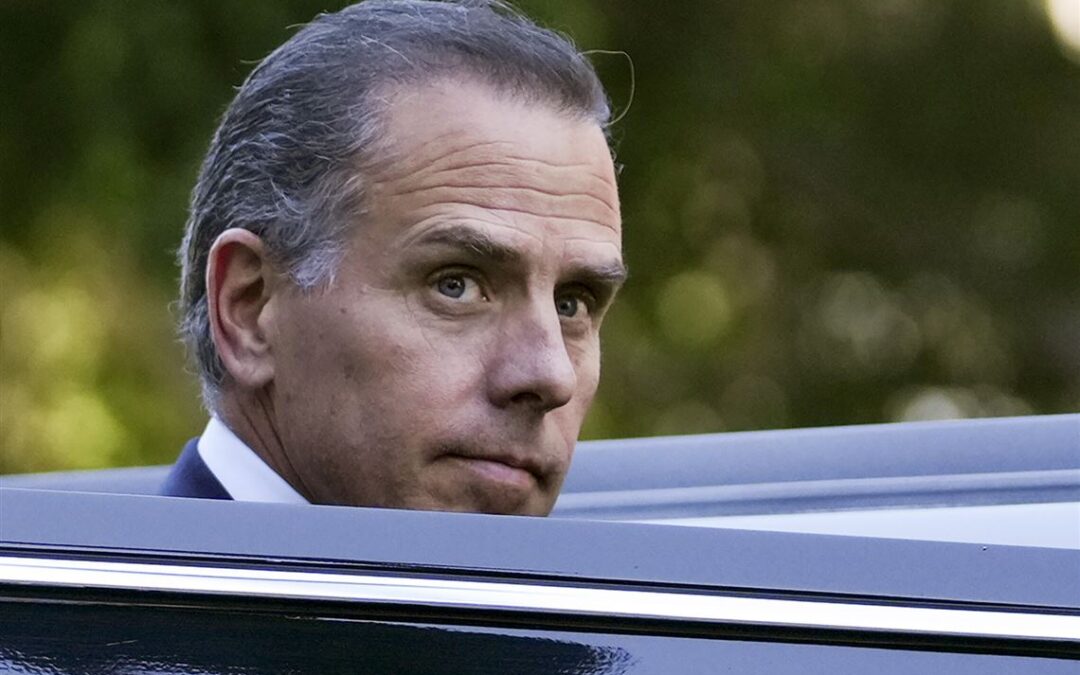My column today in the Pittsburgh Post-Gazette.
Bruce Ledewitz: What can presidents do? And not do?
Special to the Post-Gazette
Oct 21, 2024
5:30 AM
Presidents can do a lot — a lot of good and a lot of harm. But they can’t do everything. That should both frighten and reassure us as the presidential election approaches.
I am not referring to the fear of some Democrats that former President Donald Trump, if elected, will declare a national emergency and use the army to round up political opponents. People believe this because of Trump’s own irresponsible rhetoric. He may have meant “other than day one … I’m not a dictator” as a joke, but it’s not funny coming from someone who tried to overturn an election.
Fortunately, the courts remain open and the Supreme Court was not shy about keeping Trump within lawful bounds in his first term. His threat to prosecute President Joe Biden is now clearly out of reach because of the presidential immunity decision this past term.
Domestic policy
Rather, I am referring to what Presidents can do legally. The following are just high points of what we can expect from each candidate if elected.
Domestically, almost everything that Harris has talked about during the campaign — housing affordability, a fairer economy, a border deal — requires congressional action. Polls show Republicans likely to retake the Senate and having a better than even chance of retaining the House. Thus, in a Harris administration, the only proposals that will pass will require bipartisan support.
There are policies that administrative agencies carry out and, therefore, even without Congress, a Harris Administration would be more sensitive to Trans rights and climate change. But these administrative actions are at the margins.
The situation with Trump is different. He also is unlikely to gain congressional support for bold measures, even if he has narrow Republican control. When Republicans controlled Congress during the first Trump presidency, the most noteworthy bill he passed was the 2017 tax cut. Those cuts are expiring. If Trump is elected, those cuts will become permanent. If Harris is elected most will disappear.
Trump has said that he will repeal Biden Administration climate change initiatives. But much of these are embedded in a statute and would require congressional action to rescind.
Trump’s advantage
Nevertheless, domestically Trump has an advantage over Harris because the two major initiatives he wants to pursue are largely within the independent authority of the President: imposing tariffs on most imported goods and increasing deportations of unauthorized immigrants. Trump may not act as dramatically as he promises, but undoubtedly he will do something.
The limits in these two areas are practical rather than legal. Tariffs will not work the way that Trump apparently believes they do. He believes tariffs are paid by foreign companies, raising revenue for the government, and not contributing to inflation. Economists believe tariffs are paid by consumers, and thus increase prices, and do not raise that much government revenue. This will become apparent pretty quickly and that will be the end of general tariffs.
In terms of deportations, there are estimated to be more than 11 million unauthorized immigrants in the United States. Immigrants who are seeking asylum probably cannot be deported without a hearing that the overburdened immigration system will probably be unable to provide. This can only be fixed by a legislative change in immigration law.
As for the large number of people who entered the U.S. without inspection, many have jobs in agriculture and construction. Their work supports the economy. They pay into Social Security without prospect of benefits. The Pew Research Center estimates that 8.3 million unauthorized immigrants are in the U.S. workforce, about 4.8% of all workers.
Many of these people are legally subject to immediate deportation. Any President could easily round up thousands of them, if not millions, and deport them at any time. Everyone knows that there are people working who have no legal right to be here.
But the government has always largely turned a blind eye because raids on major employers would be politically unpopular and economically disruptive. If Trump tries to deport on a mass scale, the effort will probably implode.
Foreign and military
In terms of foreign affairs and military matters, a President has more room to operate. In the case of Harris, we could expect a continuation of Biden Administration policies, including strong support for Ukraine and Taiwan along with cautious support, and criticism, for Israel. Under Harris there would also be continued American participation in international efforts to limit climate change.
Trump clearly will end that American climate participation. He will also end, or threaten to end, all military support for Ukraine in order to force Ukraine to the bargaining table with Russia. On Israel and Taiwan, Trump’s rhetoric will be stronger than under Harris, but it is not clear that his actual policies will be that different from those of Biden. Given Trump’s record in his first term, people who imagine that Trump will involve U.S. forces in an attack on Iran are fooling themselves.
We don’t elect Presidents purely on the basis of policy, of course. But it is useful to think about the likely consequences for policy as we cast our votes.
Bruce Ledewitz is a professor of law at the Thomas R. Kline School of Law of Duquesne University. His previous article was “Joe Manchin should be a Democratic party hero.” The views expressed do not represent those of Duquesne University.
First Published: October 21, 2024, 5:30 a.m.






0 Comments